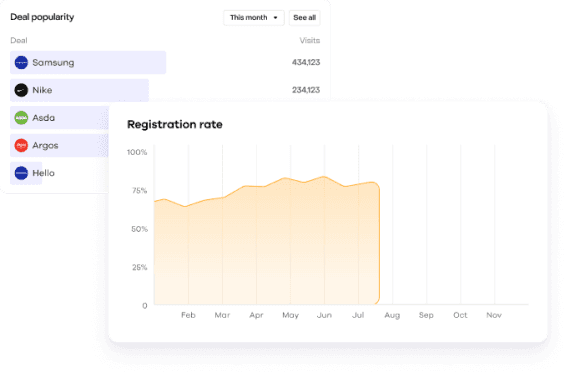
Things have changed around here
We've rebranded from Collective Benefits to Onsi. This content is from before our rebrand so you may see mention of our old name.
Collective Benefits occupies a distinctive position within the platform economy. Through our members (who work in the platform economy) we’re able to listen, aggregate and represent their wants and needs across all the industries that the platform economy operates in. For example, the caring professions, construction, logistics, Q-commerce, or personal hire.
At the same time, we’re close to our partners - pioneering platform companies who we support to provide benefits and protections to the men and women who work on their platform.
Taken together, this gives us an important convening role and a duty to contribute to the on-going conversation about the future of work in the platform economy.
As an example, we recently hosted a webinar where we shared information on important new proposals from the European Commission (the EC) to improve working conditions in the platform economy.
We also invited Samuel Laurinkari, from Wolt, and Pierre-Emmanuel Froissart, from Uber, to contribute their perspectives: what they welcome, what their concerns are, and what they would prioritise if they were an EC Commissioner for the day.
The announcements that accompanied the EC proposals quite rightly recognised the job creation, consumer benefits and innovative capacity of the platform economy. Uber and Wolt are two key engines of this, and so their views, based on an understanding of their business and their vision for how work in the platform economy should be, are important to hear.
I also have three, personal, reflections following the event:
Mood music as a guide to the future
The details of the EC proposals are important, as is the quality of their implementation and whether they are likely to deliver the outcomes sought. But there is also the policy mood music; the sentiment in the air, the values that are finding expression in policy, legislation and rights.
On my reading, the EC proposals are clearly a robust reassertion of -
The importance of social protections, whatever the form of work
A level playing field across the European Union
An updating of worker rights, in light of the changes that technology brings to the workplace.
Values - of societies, organisations and individuals - tend to be stable things that people defend in the face of challenges. Recognising them (and their significance) is likely to be a trustworthy guide for platforms who want to plan for the future.
It’s good to talk
Mathew Taylor, author of the Uk’s landmark review of modern work, hosted a fascinating series of radio interviews called Agree to Differ. The central idea is that two people with firmly held views on contentious issues such as fracking or vivisection are brought together to identify what really divides them, and what they can agree on. For example, a matter of fact, knowledge or values.
Such conversations are hard, candid and often involve vulnerability. But, I think more forms of decision making could make use of techniques similar to those modelled in the radio show. (Tellingly, when in government, Matthew Taylor led the Big Conversation, a major initiative to tap into the views of grassroots Labour party membersfor the then UK Prime Minister, Tony Blair).
My hunch is that we need to have much more conversations of this form in the platform economy. Which leads to my next point:
What do platform workers think of the EC proposals?
We’ve heard, eloquently done, what platforms think of the proposals. But, what of the people who matter most? To the best of my knowledge, nothing really exists to tell us what workers in the platform economy think and feel about the EC proposals - or, even if they have heard about them (I suspect not).
Of course, we have data that workers value the flexibility over when and where to work that working in the platform economy provides. From Collective’s own research, we also know that benefits and protections are important to them.
Through a change to employment status, under the EC proposals up to 4.1 million platform workers will achieve protections and benefits through some loss of flexibility. The effect of this is difficult to model, but a start would be some conversations with those most affected.




